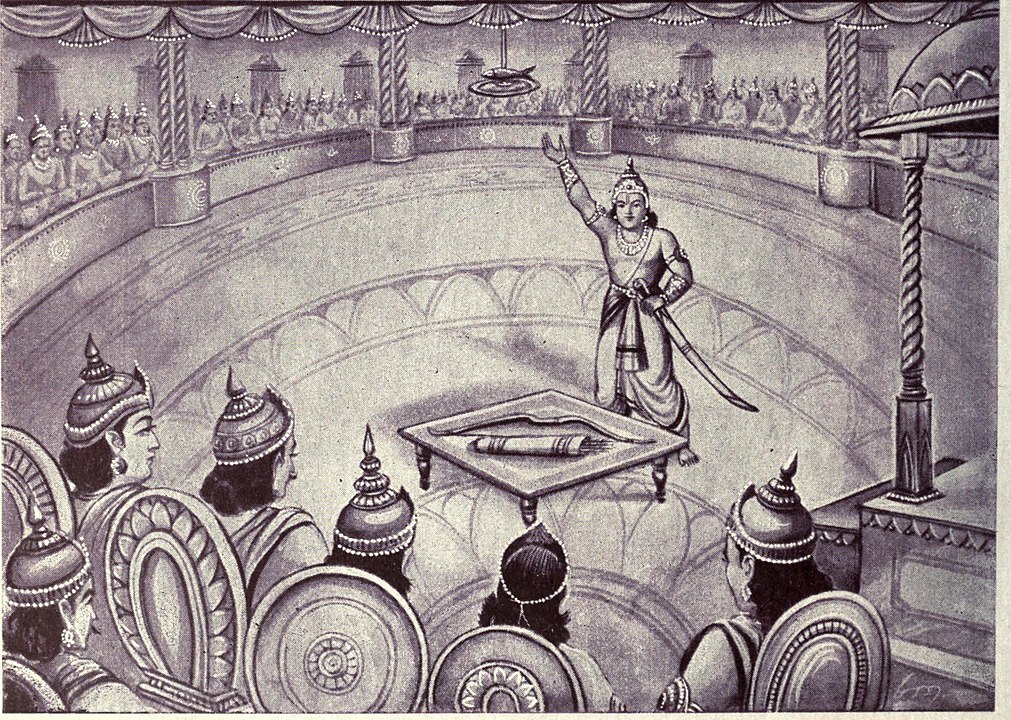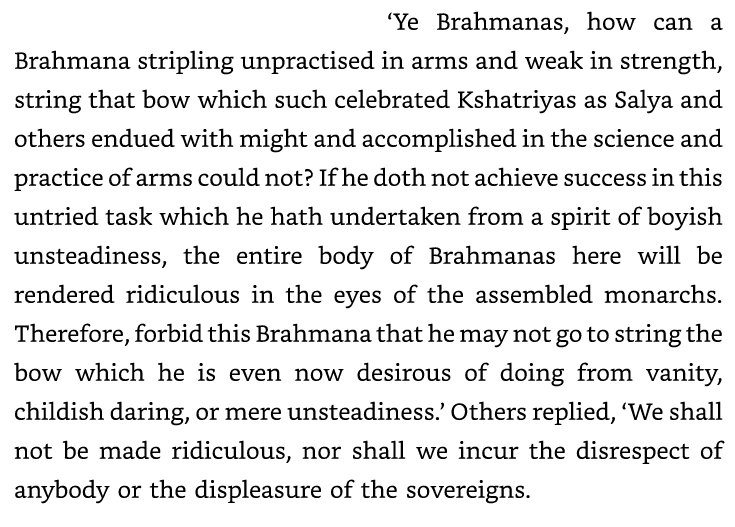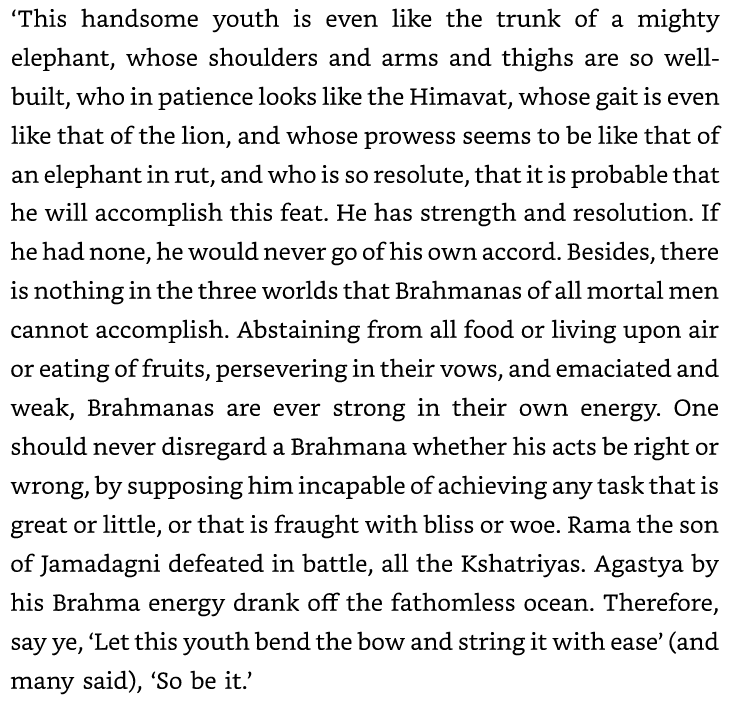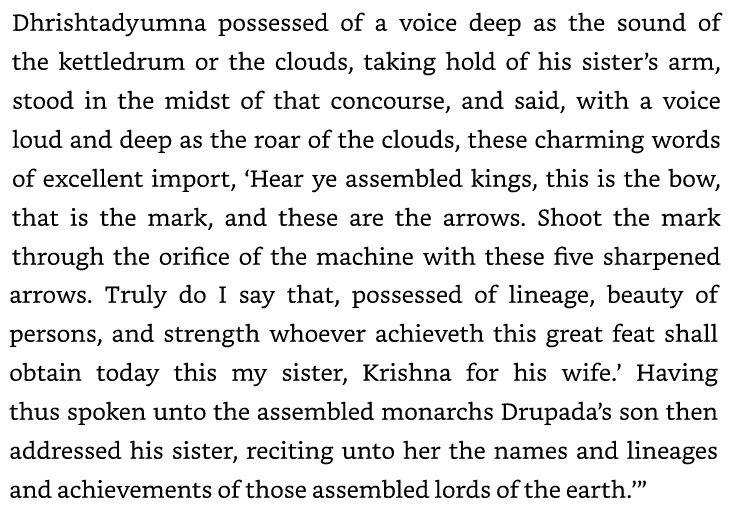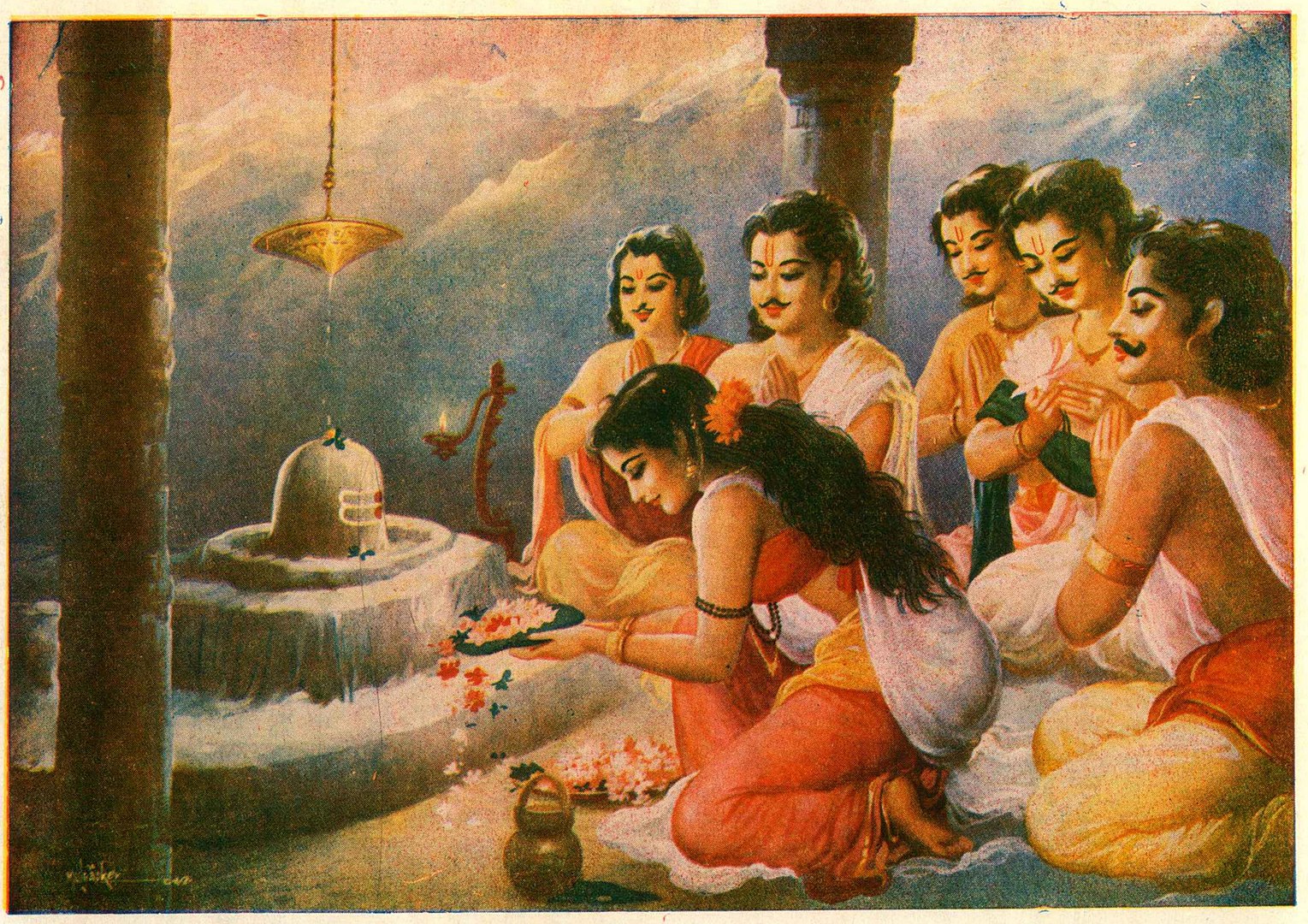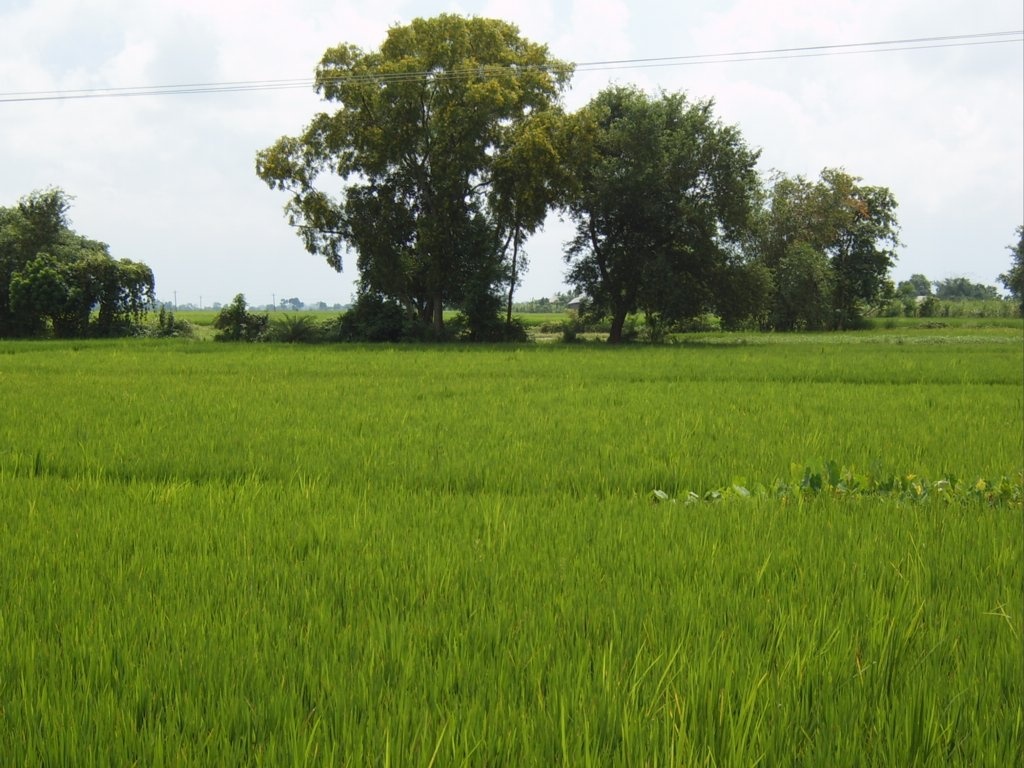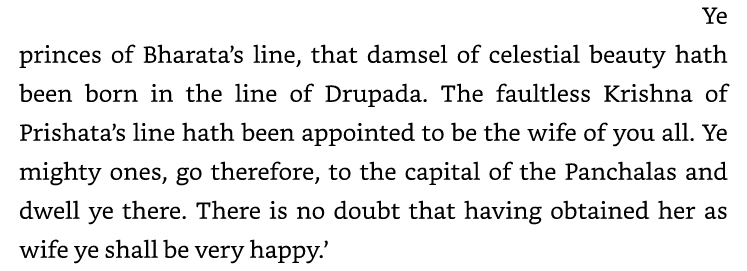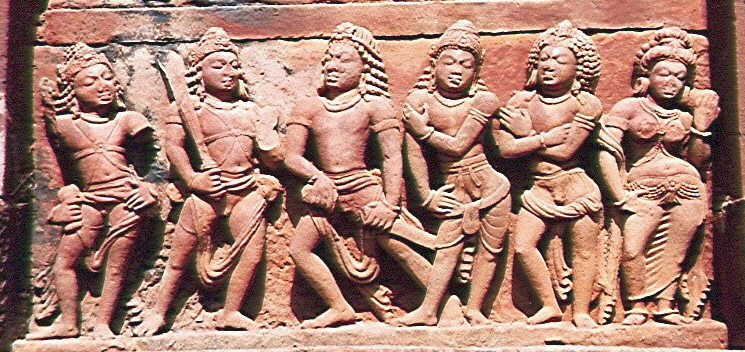
As we know, King Drupada secretly wanted his daughter, Draupadi, to marry the great archer, Arjuna. Therefore, he devised a challenge for Draupadi’s swayamvara, that could only be completed by Arjuna. The challenge was to string a very heavy bow and shoot down a mark that had been placed high up on specially erected machinery.
Powerful kings and princes had come from near and distant kingdoms to participate in the swayamvara. However, none of them were even able to string the bow, let alone shoot the mark.
Note: Karna was able to string the bow, but was restrained by Draupadi from participating in the challenge.
After everyone else had failed, Arjuna (who was disguised as a brahmana youth) got up, strung the bow in the blink of an eye, and shot down the mark with five simultaneous arrows.
King Drupada was delighted and so was Draupadi. Draupadi got up and approached Arjuna with a white robe and garland. I’ve inserted quotes from Kisari Mohan’s translation of the Mahabharata where he describes the expressions of King Drupada and Draupadi (called Krishna in the quote) after Arjuna shot down the mark.

Yudhishthira and the twins leave the swayamvara to return to the potter’s cottage.
However, the monarchs who had assembled there to participate in the swayamvara were deeply unhappy when Drupada expressed his consent to the marriage. They were kings and princes, and even though they were clearly aware of the rules of the challenge, they considered themselves superior in might and splendour to the brahmana youth who had shot down the mark. They believed themselves to be more deserving of Draupadi.
So strong was their insult and indignation that, after a brief consultation with each other, they made a collective decision to spare the brahmana youth and slay Drupada.
When Drupada saw the kings, with Karna leading them, rush towards him with arms in their hands and hostility on their faces, he was taken aback. He took a step back because he feared for his life, however, the brahmana youths (Bhima and Arjuna), comforted him and prepared to fight the assailants.
Bhima uprooted a tree with his bare hands and stood there to face the threat, while Arjuna readied himself with his bow and arrow.
As the monarchs came near, Karna rushed to fight with Arjuna, and Salya (the king of Madra), rushed to fight Bhima. Duryodhana and a few other kshatriyas had minor skirmishes with the other brahmanas in the audience.
Arjuna, who was already prepared with his bow and arrows, shot a volley of arrows at Karna. So quick and fierce was Arjuna’s attack that Karna fainted. However, he recovered quickly and fought with greater care. Both the archers enveloped each other with a shower of arrows until they became invisible to everyone. Only their words could be heard emanating from a cloud of arrows. Karna fought with all his might, but he could not defeat the brahmana. Astonished, Karna asked the brahmana to reveal his identity. However, Arjuna simply said that he was an ordinary brahmana who had been graced by his teacher in the mastery of Brahma and Paurandara weapons. Karna decided to retreat from the fight thinking that Brahma energy was invincible.
Meanwhile, not too far away, Salya and Bhima fought with their hands and legs. They punched each other with their fists and knees. Sometimes, Salya threw Bhima on the ground and dragged him, while, at other times, Bhima threw Salya on the ground and dragged him. The fight continued until Bhima lifted Salya and threw him with enormous force several metres away. Being both noble and skilled, Bhima threw his opponent with perfect dexterity so as to not hurt Salya much.
The remaining kings were alarmed when they saw Salya on the ground and Karna struck with feat (of his opponent’s Brahma energy). They realised these brahmanas were mighty warriors and decided to stop fighting. They agreed, among themselves, that kshatriyas should protect brahmanas and not fight with them.
However, everyone assembled there was curious about one thing — they wanted to know the identity of the brahmanas who had fought so valiantly.
Lord Krishna was also present there and he knew that the brahmanas were none other than Arjuna and Bhima, and he also knew the importance of keeping their identity a secret. Stepping in at the right time, he gently addressed the monarchs and convinced them that the brahmana youth had justly fulfilled the condition of the challenge by bringing down the mark and it was best for everyone to return to their kingdoms without pursuing the matter further.
The kings and princes were convinced by Krishna’s words and prepared to return to their kingdoms without asking any further questions to Drupada or the brahmanas.
Author’s Notes: I’ve read several stories about devas and asuras, and two tendencies (a similarity and a difference) have consistently stood out through these stories. Very often, both the devas and asuras, perform actions motivated by lower emotions such as greed, lust, vengeance, etc. However, a big difference between them is that when the devas are made to understand their wrong ways (usually by the trinity — Brahma, Vishnu, Mahesh), they seek forgiveness and try to make amends. The asuras, on the other hand, never (or in very rare cases) accept their mistake. Not only do they never make amends, but they usually dig in their heels and increase the intensity of their adharmic actions.
This tendency is seen in humans also — as we see it in this story, where the kings through fury and jealousy in the spur of the moment, they retreated when Sri Krishna convinced them to do so.

